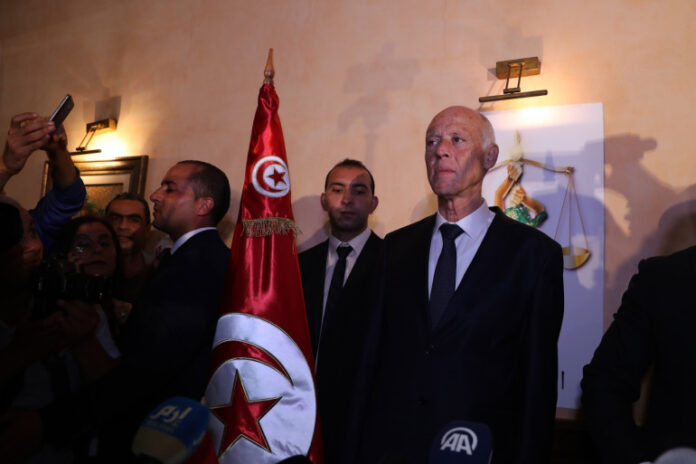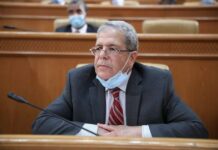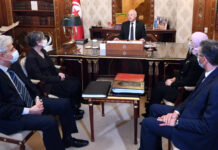They are overwhelmingly men, rather old, unattached to civil society and mass organizations and, for the most part, organically versed in corruption. Indeed, these are the main characteristics of the so-called Tunisian democratic opposition, or which proclaims itself so. As for the fundamentalists, they oversee them in a way.
This adds to the popular distrust now almost innate towards those who hold the top of the pavement.
Instrumentalizations
In fact, the Tunisian opposition has virtually nothing to do with the 2011 revolution. In truth, it was spontaneous, without a leader or program, let alone ideological paraphernalia. As soon as Ben Ali’s government was overthrown, opponents of all stripes reapplied from all sides. As the days went by, they monopolized the revolution. In fact, his river was diverted to the benefit of the arrivistes grimés in parties.
From 2011 to 2019, Tunisians voted eight times. The parties that were still marginal or simply incognito have seized power. The electoral system, carefully designed and concocted for this purpose, has benefited them. As clearly seen, in Tunisia, as in Italy in the post-war period, the partitocracy was born. So do the mafias.
The eruption of political mafias
With rare exceptions, the mafias took over political parties for ten years. Meanwhile, the country went from bad to worse. The economic and political situation has worsened.
Poverty spread, unemployment increased, and rising prices of basic goods and services became endemic and unbearable. In fact, paradoxically, as is true in countries with a weak liberal and democratic tradition, the mafia became a substitute for the bourgeoisie. Rather a jumble of bureaucrats capturing dignities, unproductive rentiers and upstarts converted into improvised dignitaries. The Islamizing “bourgeoisie” seized power. The bourgeois and dignitaries of the old regime and traditional, subjected to racketeering, were brought to the ground. Widely shared discredit In recent years, the Tunisian economy has been dislocated. Indebtedness, especially external debt, is rampant. Gross national product declined for the first time since 1962. It fell by a further 12%.
Corruption gained ground. The nouveau riche redoubled their abuses and embezzlement under various names and legal tricks. Terrorism, fueled by Ennahda’s undercover, created new grimaces of fear and horror. Hundreds of Tunisians perished there. Exhausted, pressed to life, wading in the insecurity and anguish of the next day, the Tunisian population questioned the political class in charge. It pointed its accusing finger, vociferous. The discredit struck indiscriminately all the elected officials, more than 7500 people if we take into account the elected municipal officials. Popular opprobrium and vindictiveness hit them hard.
Kaïs Saïed, as Monsieur propre
In fact, this explains the very wide popularity of Kaïs Saïed, the President of the Republic. His constitutional coup of July 25 was cheered by cheering crowds one night. This meant, in their eyes, the end of the most pitiful of recesses. His critics accuse him of populism, fomenting a coup and authoritarian leanings. This may seem true in some respects.
On the other hand, the average people and large sections of the middle class see in him Monsieur propre. Which it certainly is. In truth, despite his investment in the blogosphere and foreign acquaintances, the opposition to Kaïs Saïed lacks credibility. It is sparse, bordering on inconsistency, shady and doubtful in the eyes of the people. Deprived of its privileged place of gesticulation, Parliament, the opposition enrages. Because, in fact, she only knows how to gesticulate in the Chamber. Otherwise, she is content to bayer with crows. Arm wrestling Of course, there can be no democracy without representative bodies. Just as there can be no political life without parties. However, the latter would benefit from not officiate like empty shells.
Worse, they are now amassing in a nebula of unnatural alliances. Thus we find figures of the defunct left at the head of the demonstrations of Ennahda and its bumpers of the Islamist extreme right. The standoff promises to be long between the supporters of Kaïs Saïed and those of Ennahda overseeing the opposition. But it suffers from its own flaws. They suffocate him. Lacking real charismatic or credible leaders, the opposition to Kaïs Saïed struggles. Like what who sows the wind reaps the storm. And who cultivates inconsistency accumulates failures.
French article by SBF Translated to English by Rifi-JDD











